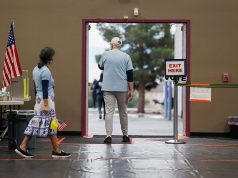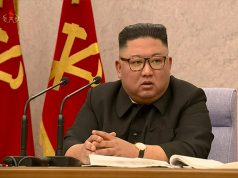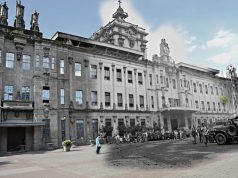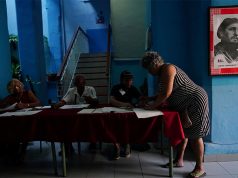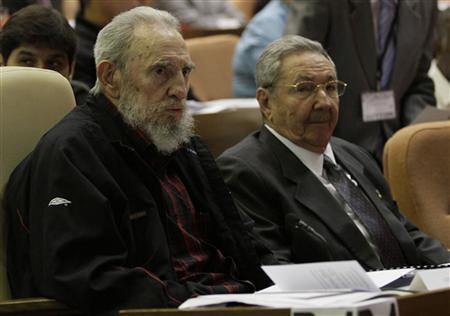
HAVANA — Cuba marks the first anniversary of the death of revolutionary leader Fidel Castro on Saturday with a week of vigils nationwide, as the island embarks on a political cycle that will end 60 years of the Castro brothers’ rule.
Fidel, a towering figure of the 20th century who built a Communist-run state on the doorstep of the United States and defied U.S. efforts to topple him, died aged 90 on November 25 last year.
The Cold War icon had already been largely out of public view for around a decade, having formally ceded the presidency to his younger brother, Raul Castro, in 2008 due to ill health. Cubans say his death changed little on the island.
The pace of reforms instigated by Raul to update the Soviet-style command economy has continued as hesitantly as before. Cuba’s relationship with the United States, meanwhile, has actually worsened due to U.S. President Donald Trump’s more hostile stance.
More significant politically, analysts say, will be the electoral cycle that starts Sunday with a municipal vote and will end with the selection of a new president in late February. Raul, 86, has said he would step down at the end of his two consecutive terms.
The transition is expected to be gradual as Raul will remain head of the Communist Party. It comes, however, as the country faces a tricky time with a decline in aid from ally Venezuela, weaker exports and a resulting cash crunch.
“Not even we know what our future will be,” said Ariadna Valdivia, 45, a high school teacher. “Raul is ending his term in 2018, Fidel is already history, and I don’t really see any way of improving things.”
“Salaries are the same, food is always getting more expensive and now we have Trump tightening the embargo.”
National mourning
By the time of his death, Castro had been out of the public limelight since an intestinal ailment nearly killed him in 2006, occasionally writing columns and receiving foreign dignitaries at his home.
His death last year plunged Cuba into nine days of national mourning. A funeral cortege carried his ashes on a three-day journey from Havana to his final resting place in the east of the island, where he had launched the Cuban revolution.
“I am Fidel” became a nationwide chant, as many Cubans pledged to stay faithful to the revolution he led that in 1959 overthrew a U.S.-backed dictator.
“He was the best we’ve had as a leader,” said Rene Perez, a Havana taxi driver, echoing the feelings of many Cubans who miss Fidel’s leadership, especially at times of crisis. Raul did not appear in public after Hurricane Irma thrashed the island in September.
In keeping with his wishes to avoid a personality cult, no statues have been made of Fidel or public places named after him in Cuba. Even his tomb is a sober affair, a large granite boulder in Santiago de Cuba’s Santa Ifigenia Cemetery with a plaque simply reading “Fidel.”
Galas and vigils in honor of Fidel will be held around the country this week, according to state-run media. Cultural institutions like the national ballet are dedicating their shows to his memory, and state television is running archived footage on a loop.
The municipal vote on Sunday, the only part of the electoral process with direct participation by ordinary Cubans, is being cast in state media as a show of support for his ideas. Posters of Fidel hung at assemblies where neighborhoods nominated candidates over the last two months.
It will be followed by provincial and national assembly elections in which candidates are selected from slates by commissions. The new National Assembly will then in late February select a successor to Castro, widely expected to be First Vice President Miguel Diaz-Canel.
Eduardo Torres, the director of Cuba’s National Library, said there were several politicians well placed to become president but there would never be another Fidel and the country faced a generational transition.
“Raul had the weight of the historic generation,” said Torres. “When he leaves, it is another generation and another history we will start to build.”





